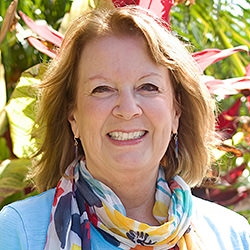
Search Results: limits
-
So many of us have a habitual response of trying to eliminate uncertainty and the arrival of what we don't want. Alternatively, we can embrace the irreducible uncertainty of life. This shift from resistance and helplessness to mourning allows acceptance of outcomes, reduction of stress, and opens the door to noticing and appreciating what's present and available amidst challenges.
-
This is an opportunity to explore/transform a limiting belief you have about yourself using what science is discovering about neurobiology. A limiting belief is simply an idea or thought we have about ourselves/life that we or others have affirmed over and over again – these ideas usually get in the way of living life fully.
-
When you attempt to make a request what limiting beliefs come up? See if you recognize any from this list. Then compassionately observe your body sensations, impulses, feelings, needs, memories, energy, and images. In making the request ensure your request is connected to your needs, is doable, what you want, and not attached to them saying yes.
-
-
-
In this prerecorded telecourse, Miki Kashtan uses an interactive dialogue to address some of the most common questions among new NVC facilitators and trainers.
-
CNVC Certified Trainer Anne Walton leads us through a guided visualization to help us make a shift in ideas we hold about ourselves. (Edited and Updated 10/6/2019)
-
-
Last year, I planted my vegetable garden in February. It was an enormous amount of work to get it ready. This year, we decided to move the garden farther away from trees (to avoid the ongoing tree root issue and allow more sun). So, we created 4 new beds. Now, they are ready to be planted, and yet… forward momentum has stalled.
-
Empathy alone can be unreliable in guiding compassionate action. As seen in historical events, military training, personal anecdotes, and scientific experiments, empathy alone may not prevent people from harming others. A sense of duty or obedience, often instilled through fear of punishment and shame, might inhibit empathic action. The antidote may be to fostering empathy without resorting to control, shame, or punishment.
-
-
-
-
-
When it comes to self-sabotage and self-limitation, what's happening when we make ourselves smaller than we are? And what is it with the crippling experience we suffer when we exceed our own self-imposed limitations? What unconscious needs is your nervous system meeting by remaining small? Read on for the insights of Beatrice Beebe's research on biological imperatives, emotional language, and emotional limitations.
-
- Explore what makes the capacity lens radical and practical
- Understand the complexities of how capacity and willingness interface
- Mourn capacity limits within and around us without jumping to conclusions
- Orient to agreements as behavioral anchoring in support of your commitments
-
This article aims to discuss shifting fully from power-over to sharing power in families; turning power struggles into dilemmas. It focuses on the topic of living in a partnership paradigm as a family...
-
Each of us has a range of capacities. Miki Kashtan describes this as a range from "floor to ceiling." Floor capacity is what happens when you hit your limitation, ceiling capacity is when you are closest to functioning in line with your values and vision. This video describes the need to work on both to prevent the gap from expanding.
-
Total inclusion is impossible: inclusion of all can often lead to exclusion of those who can't bear the behaviors of some. Many groups flounder and disintegrate because of too much inclusion. Limited resources and capacities may make it necessary to exclude. Keeping more coherent shared values and strategies may be another reason to place membership conditions so that what appears to be exclusion may give movements a chance to expand.
-












